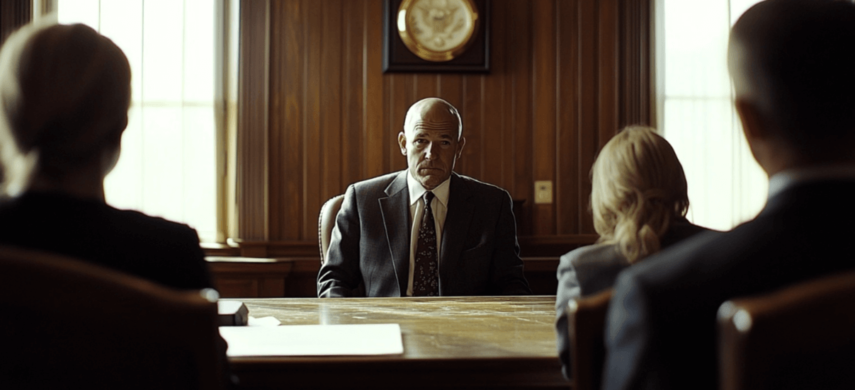
Marriage is usually a straightforward legal arrangement—two people say “I do,” sign the paperwork, and move forward as a legally recognized couple. But what happens when that legal foundation isn’t as solid as it seems? This is where the concept of a putative marriage comes in.
A putative marriage occurs when at least one spouse genuinely believes they are legally married, only to later discover that something was legally defective—maybe a missing divorce decree from a prior spouse, an invalid marriage license, or a technical error that went unnoticed for years. In some states, this might leave a spouse with no legal recourse. But in Colorado, courts recognize putative marriages and grant certain protections to spouses who entered the union in good faith.
For those caught in this legal gray area, the implications can be significant. Rights to property, spousal benefits, and even divorce protections may hinge on whether a court acknowledges the marriage as putative. Understanding how Colorado handles these cases is crucial for anyone who suspects their marriage might not be as legally sound as they thought.
How Colorado Defines a Putative Marriage
Not every mistaken marriage qualifies as putative in Colorado. The law doesn’t protect couples who knowingly enter an invalid marriage, nor does it apply to relationships that were never intended to be legal unions in the first place. Instead, Colorado courts look for one key factor: a good faith belief that the marriage was valid.
Under Colorado Revised Statutes § 14-2-111, a putative spouse is someone who honestly believed they were legally married, despite an underlying issue that made the marriage void or voidable. This belief must be reasonable, meaning the spouse had no reason to suspect a legal flaw-such as a still-active previous marriage, an improperly filed marriage certificate, or an officiant who wasn’t legally authorized to perform the ceremony.
How Does This Differ from Common-Law Marriage?
Colorado is one of the few states that still recognizes common-law marriage, where couples can be legally married without a ceremony or license if they meet certain requirements. But while common-law marriage is based on mutual intent and public acknowledgment, putative marriage is about mistaken belief-one spouse believes they are legally married, but due to an unseen legal defect, they are not.
Think of it this way: A common-law marriage is an intentional handshake, while a putative marriage is an unintended misstep. The court’s role is to determine whether that misstep was made in good faith and, if so, provide certain legal protections.
Rights of a Putative Spouse in Colorado
Once a court recognizes a putative marriage, the spouse who acted in good faith is entitled to many of the same rights as a legally married spouse. This can make a significant difference in cases involving property division, spousal support, and even parental rights.
Property Division
In a legal marriage, assets acquired during the union are typically considered marital property and subject to division. A putative spouse in Colorado is afforded similar treatment, meaning they may have a right to an equitable share of jointly acquired assets, even if the marriage itself was invalid.
Spousal Support and Benefits
Colorado courts may award alimony to a putative spouse if they relied on the marriage financially. In some cases, putative spouses may also qualify for benefits such as Social Security, pension rights, and inheritance, depending on the circumstances and federal regulations.
Children and Parental Rights
Putative marriages do not affect parental rights or responsibilities. If children are involved, Colorado courts will apply the same standards for custody, child support, and parental responsibilities as they would in a valid marriage.
While a putative marriage offers legal protections, these rights are not automatic. The court must formally recognize the relationship as putative before these benefits apply.
How Courts Determine Putative Marriage Status
Colorado courts don’t take putative marriage claims at face value. To qualify, the spouse making the claim must prove they genuinely believed the marriage was valid and had no reasonable way of knowing otherwise. Courts generally consider:
- Whether the spouse had a valid marriage license and followed proper legal procedures
- Whether there was a prior unresolved marriage that made the new marriage legally impossible
- Whether the officiant was legally authorized to perform the marriage
- How long the couple lived together and held themselves out as married
- Whether there is any evidence that contradicts the claim of good faith
The burden of proof lies with the person seeking putative spouse status. In some cases, disputes arise when one spouse knew the marriage was invalid but failed to disclose that information. Courts are more likely to side with the spouse who was unaware of the legal defect.
What Happens When a Putative Marriage Ends?
Even though a putative marriage isn’t legally valid, Colorado courts still recognize the rights of a good-faith spouse when the relationship ends. However, unlike a standard divorce, there’s an added step—first, the court must determine whether putative spouse status applies. If granted, the marriage is treated as if it were valid for the purposes of dividing property and awarding financial support.
From there, standard equitable distribution rules apply, meaning assets are divided fairly, though not always equally. The court will also consider whether the putative spouse relied financially on the relationship, potentially awarding spousal maintenance. But if one party knew the marriage wasn’t legal and failed to disclose it, the court may limit their claims.
While the legal path for ending a putative marriage mirrors a traditional divorce, the process starts with proving that one spouse truly believed the marriage was valid. That distinction is what makes these cases unique.
Are You in a Putative Marriage?
Putative marriages exist in a legal gray area, but Colorado provides protections for those who entered a marriage in good faith. If you suspect your marriage may fall into this category, give us a call at (720) 613-8268 so we can help clarify your rights and next steps.





